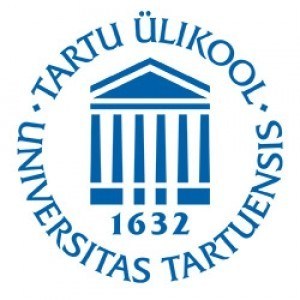Photos of university / #unitartu
Semiotics is the general study of sign processes, or semiosis. Semiosis makes the world meaningful.Today's world, where processes have a disbalance of global and local dimension, challenges us to understand the need of individuals and societies for defining their identity. Semiotics is centrally relevant to achieve this understanding.
The 2-year Master´s programme in Semiotics provides interdisciplinary background and gives a theoretical base for application of semiotic ideas to a wide variety of disciplines and scientific study. The programme binds together the theory of semiotics and three core modules - cultural semiotics, biosemiotics and sociosemiotics.
Why study semiotics in Tartu?
- The tradition of excellence in semiotic theory in Tartu was established by Juri Lotman in 1960s, the founder of semiotics of culture and the Tartu-Moscow Semiotic School, as well as the oldest journal of semiotics, Sign Systems Studies.
- The University of Tartu is one the few institutions in the world teaching full Master´s and PhD degree programmes in semiotics since 1993.
- As one of world´s major centres of semiotics, the University of Tartu collaborates and is regularly visited by professors from all around the world: Myrdene Anderson, Paul Bouissac, John Deely, Dinda Gorlee, Jesper Hoffmeyer, Winfried Nöth, Roland Posner, Frederik Stjernfelt, Eero Tarasti, and many others.
- The finest collections of semiotic materials in Tartu include the memorial library of Thomas Sebeok, one of the world leaders in the 20th century semiotics, and the Centre of Jakob von Uexküll, a Baltic German whose works have been very important to the development of biosemiotics.
- Excellent international career prospects
- Graduates can apply their expertise in the professions that require a complex knowledge of cultural analysis, i.e. semiotic consulting companies, marketing or media.
- Practical applications of semiotics include translation and science writing, design and architecture, advertising, and communication strategies.
- Employees of international organizations, e.g. embassies, where tolerance and conflict management skills are vital, can improve their professional education.
- Programme graduates can continue on to doctoral studies and research. Semiotics is particularly relevant to advanced study in the life sciences, where biosemiotic understanding and semiotical interpretation is proving to be of remarkable value
General module
History of Semiotics: Basic Concepts and Classical Works
Tartu-Moscow Semiotic School
Readings of J. v. Uexküll and J. Lotman
Methodology for Semiotic Analysis
Module - Semiotics of Culture
Cultural Semiotics and Theories of Culture
Semiotics of Translation
Semiotic Analysis of Art and Multimedia
Module - Biosemiotics
Biosemiotics
Ecosemiotics: Cultural Interpretations of Environment
Zoosemiotics: Umwelt and Animal Communication
Module - Sociosemiotics
Sociosemiotics and Societal Theories
Communication and Power
Semiotic Analysis of Subcultures
Optional courses - can be chosen from courses currently available at the University of Tartu.
Masters thesis - Individual research paper, written under the supervision of a professional semiotician.
TOTAL 120 ECTS
Audience:
All students who have a Bachelor's degree in social sciences, natural sciences or humanities are welcome to apply.
In order to apply you need to:
1. Submit the online application. You will receive an applicant code, which gives access to your account to track your application status. We ask you to upload the electronic copies of all the required documents to your application. This makes the pre-processing of your application quicker and is especially important for candidates applying to more than one programme.
2. Mail the printed and signed application (do not send any documents by e-mail) with all the required documents by the indicated deadline to: International Student Service, University of Tartu, Ülikooli 18, Tartu 50090, ESTONIA.
You need to submit:
1. online application;
2. motivation letter - guidelines and evaluation criteria are included in the online application form;
3. official copy of the Bachelor's diploma or its equivalent and Diploma Supplement (transcript/mark sheet) in the original language;
4. official translation of the Bachelors diploma and Diploma Supplement (transcript/mark sheet) into English, translation certified;
5. proof of English language proficiency (TOEFL 75, IELTS 5.5, Cambridge English FCE grade B, CAE, CPE, PTE Academic 59 points, exceptions listed on web);
6. copy of the passport page stating the applicants personal particulars.
All admitted students will receive a tuition-waiver scholarship. Students receiving this scholarship do not have to pay the tuition fee if they complete full-time study load (30 ECTS per semester). If it turns out that they do not complete full-time study load per semester, they have to pay tuition fee per missing credit point below the required 30 ECTS.








